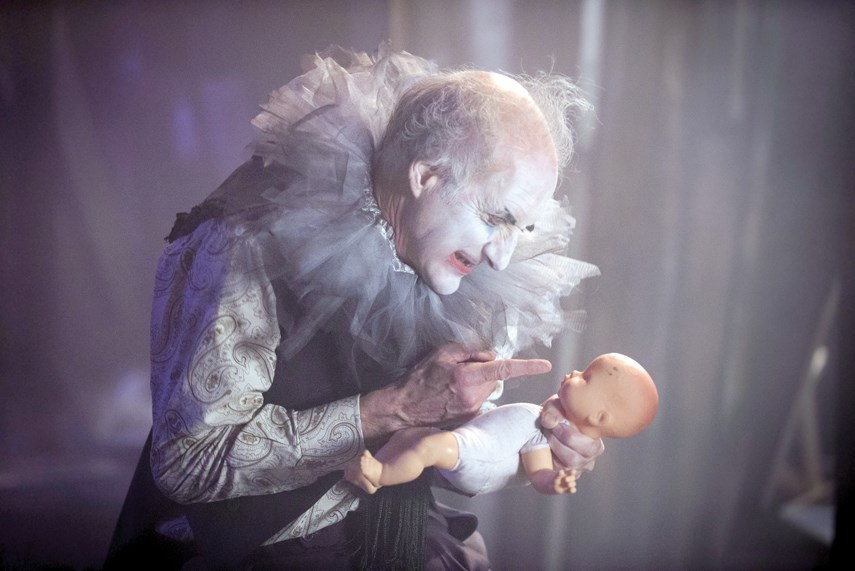There’s an intersection of beauty and brutality, a place where it’s always darkest before the punchline.
It’s on that plane, between the height of linguistic artistry and the undercurrent of satirists in pancake makeup that Titus Bouffonius exists.
Directed by Lynn Valley resident Stephen Drover, the play, which carries the full title: The Society for the Destitute Presents Titus Bouffonius, is slated to run at the Historic Theatre on Venables Street in Vancouver until Dec. 3.
Drover discusses the play during a lunch break at rehearsal, shortly before the play’s premiere.
Drover had an interest in Shakespeare’s Titus Andronicus and found himself wondering what a contemporary playwright would make of the bard’s bloodiest work.
Citing something “fearless about her writing,” Drover picked Governor General winning playwright Colleen Murphy.
She’s unafraid to explore dark places and uncover the humour in those places, Drover says.
“She’s my favourite Canadian playwright,” he says. “I really like working with top talent, rather than just working with my friends.”
Asked to describe the difference between what he thought Murphy would write and what Murphy actually wrote, Drover answers in a single word: “Vast.”
“Her work is rather domestic,” he says. “She writes plays that take place in rooms among families.”
But Titus Bouffonius, which is described as being “loosely based” on Titus Andronicus in the rehearsal draft, is big and fiery.
The characters in this play question everything Titus and Tamora hold sacred.
The invocation of a deity is immediately met with the question: “What gods?”
“The god gods – the ones we worship and club our enemies with,” comes the reply.
It’s a reply a clown could get away with.
The show is indebted to bouffon, a style of French clowning Drover says he knew nothing about.
“Jump, and build your parachute on the way down,” he laughs.
In a press release promoting the show, Murphy explains that clowns bring a “primal urgency to a story that both begs to be taken seriously and begs not to be taken seriously.”
The original play features themes of intergenerational revenge, as Tamora memorably promises she’ll “find a day to massacre them all/ And raze their faction and their family.”
She seeks the blood of a father and his sons as payment for her own son’s life (as well as her own pride).
The human tendency toward revenge, whether served hot or cold, is fascinating to Drover, who explains that the play is intended to be both “timely and timeless.”
“I’m much more interested in why it’s interesting to me for the very same reason that it’s interesting to someone 300 years ago,” he says.
He suspects commonality is in wondering how the cycle of violence might be stopped and in defining the difference between revenge and justice.
While there might be a few moments of the play influenced by today’s culture, the play doesn’t attempt to serve as an analogy to Trump or Trudeau, Drover explains.
“I guess I’m tired of going to plays (where they say) ‘given the political landscape of the world, this play’s more important than ever.’”
When asked why someone should see this play, Drover offers a thoughtful answer.
The play, which talks of limbs being lopped off and themes that focus on the devils of our nature, isn’t for everyone, he says.
“Do your homework, know what you’re coming to,” he says.
But if your sense of humour runs as dark as a Russian imperial stout on a moonless night, and if you’re open to a risky play that offers a challenge, the intersection of beauty and brutality may be the place for you.



